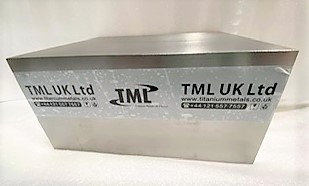Understanding the Differences Between Commercially Pure Grades 1 & 2 Titanium and Grade 5 Titanium
12th Jun 2024
Understanding the Differences Between Commercially Pure Grades 1 & 2 Titanium and Grade 5 Titanium
Titanium is known for its diverse range of grades, each offering unique properties and benefits. Among the commercially pure grades, Grade 1 and Grade 2 Titanium stand out due to their excellent corrosion resistance and formability. These grades are often preferred for applications where strength is not the primary factor, but other characteristics such as ductility and ease of fabrication are crucial.
Grade 1 Titanium is the softest and most ductile of the commercially pure titanium grades, making it highly suitable for applications requiring excellent formability and corrosion resistance. Its high level of purity ensures that it remains flexible and easy to work with, which is why it is often used in industries like chemical processing and marine environments. "Grade 1 Titanium is the softest and most ductile of the commercially pure titanium grades, making it highly suitable for applications requiring excellent formability and corrosion resistance." - ASM International, 'Titanium: A Technical Guide'.
In contrast, Grade 2 Titanium offers a balance between ductility and strength. While it retains much of the corrosion resistance seen in Grade 1 Titanium, it has an improved strength profile, making it suitable for a broader range of industrial applications. According to ASM International, 'Titanium: A Technical Guide', "Grade 2 Titanium, with its balance of strength and corrosion resistance, is often used in industrial and chemical processing applications".
Moving to alloyed forms, Grade 5 Titanium, also known as Ti 6Al-4V, is the most widely used titanium alloy. This grade includes aluminium and vanadium, which significantly enhance its strength and heat resistance. Due to its superior mechanical properties, Grade 5 Titanium is extensively used in high-performance applications such as aerospace and medical implants.
The composition of Grade 5 Titanium, which includes 6% aluminium and 4% vanadium, sets it apart from commercially pure grades. This alloying process results in a material that maintains excellent corrosion resistance while providing higher strength and the ability to withstand extreme temperatures. Titanium Information Group states, "Grade 5 Titanium, also known as Ti 6Al-4V, is renowned for its high strength, lightweight, and excellent corrosion resistance".
When it comes to cost and availability, there are notable differences between these grades. Grade 1 and Grade 2 Titanium, being commercially pure, are generally less expensive and more readily available compared to Grade 5 Titanium. The presence of alloying elements in Grade 5 Titanium adds to its cost, making it a more premium option for applications that demand its advanced properties.
In summary, the key differences between Grades 1, 2, and 5 Titanium lie in their composition and resultant properties. Grade 1 Titanium is favoured for its ductility and corrosion resistance, Grade 2 for its balanced strength and corrosion resistance, and Grade 5 for its exceptional strength and heat resistance. Understanding these differences is crucial for selecting the right material for specific industrial applications.
